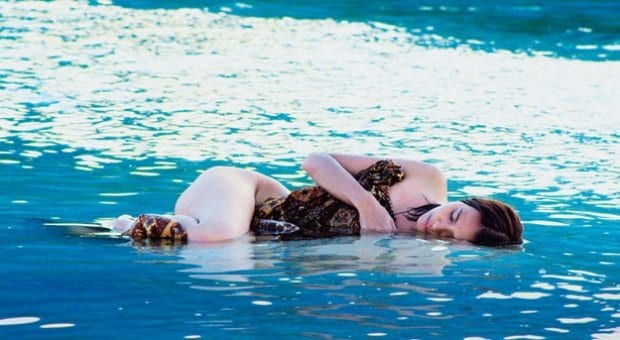It took Kanakan Balintagos 13 years to get Baybayin (The Script, in English) made. Written in 1999, it was supposed to be the Manila filmmaker’s first feature. It had been given the green light by a production company, but when it came to sorting out the final details, Balintagos found himself butting heads with executives. He insisted it be shot in his ancestral homeland of Palawan, the largely rural and mostly inaccessible part of the Philippines where the story takes place.
“The landscape is totally different from the rest of the country, and it really had to be made there,” he says. “But it’s expensive to reach, and the producers wanted something cheaper and more practical. The deal eventually fell apart.”
Balintagos put the script aside and went on with other projects. Then in early 2012, a message landed in his inbox: a new Philippine film fund had been created and the deadline for submissions was the following day. He didn’t have another project ready but didn’t want to pass up the opportunity. Baybayin had been written on a long-dead computer and his only copy was on paper somewhere in a pile of boxes in his closet.
“I told myself if the script actually shows up, it’s time to make it,” he laughs. “In a way it’s good the universe made me wait, because I’m more technically and artistically mature now. It would have been a very different piece if I’d made it back then.”
Beyond his level of experience, there is another major difference in how the film is realized. The erotic scenes have been scaled back dramatically, something that points to his country’s fluctuating relationship with conservatism.
“In the Philippines, it depends on who the president is,” he says. “The Catholic Church is still a major presence, and policy fluctuates depending on how much a particular government listens to them. During one president’s time, they suddenly decided to allow frontal nudity. Then the church got angry and so they limited it to being able to show only one breast rather than two, so you had all of these films made during a particular period with one-breast scenes. Filmmakers never know what’s coming next, so we have to constantly adapt.”
In an odd paradox, the country is one of the region’s more liberal when it comes to gay rights. There are parties and cruising grounds, particularly in the big cities, and marriage equality has been proposed in parliament several times, though it’s never come to fruition. One of prime-time’s best-rated TV shows, My Husband’s Lover, is the story of a couple dealing with the husband’s bisexuality. Queer films, including Balintagos’s own works The Blossoming of Maximo Oliveros (about a young man in love with a police officer) and Tuli (about a lesbian couple hoping to have a baby) have been big box-office hits.
“My films on queer issues make a lot more money than my films on indigenous issues,” he says with a laugh. “I think of my queer films as feeding my wallet and my indigenous films as feeding my soul.”
Based on a tribal folktale, Baybayin falls into the latter camp and follows two half sisters (played by Assunta de Rossi and Alessandra de Rossi) who are reunited after a prolonged separation. They’ve fallen for the same person (Adrian Sebastian), a deaf-mute man who communicates using only the ancient script the film is named for. Originally called Duay (meaning “two wives”), the name was changed when Balintagos submitted it for the competition, a move he partially credits with its getting made.
“In Palawan tradition, if a child gets sick you change their name, and then magically they get well,” he says. “With the film, I changed the title and suddenly it got made. It was like somehow I healed the script and it was able to live in the world.”
Shot over two weeks, the lush, sprawling work makes extensive use of the Palawan region’s natural beauty, particularly through a number of underwater scenes — a happy accident that came about when Balintagos’s team stumbled on a French underwater cinematographer vacationing in the area with his gear in tow. Some moments have a National Geographic feel, but there’s a stronger political message at play.
“There are a lot of politicians and mining companies that want to start developing the region for natural resources,” Balintagos says. “They are dying to destroy this place, and I want to capture the beauty so people can see what we need to protect.”
Baybayin, part of the imagineNative Film & Media Arts Festival
Thurs, Oct 17, 8pm
TIFF Bell Lightbox, 350 King St W
imaginenative.org



 Why you can trust Xtra
Why you can trust Xtra


